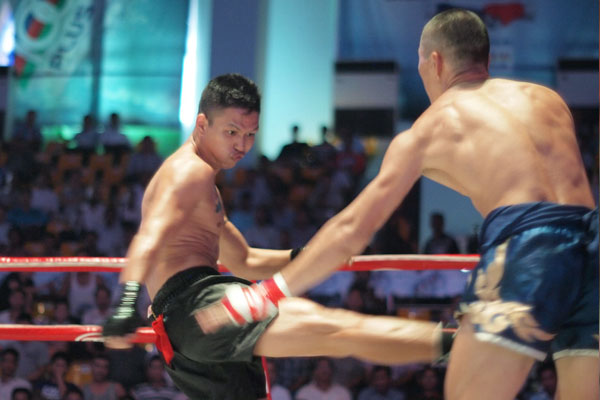Martial Arts Near Me
Lethwei
Lethwei, also known as Burmese bare-knuckle boxing, is a combat sport with a rich and storied history that stretches back over thousands of years. Deeply rooted in the culture and traditions of Myanmar (formerly known as Burma), lethwei has gained widespread popularity in recent years, attracting enthusiasts from around the world. With its brutal techniques and unique rules, lethwei continues to capture the imagination of both practitioners and spectators alike.
Lethwei's origins can be traced back to the ancient Kingdom of Pagan, in what is now central Myanmar, as early as the 2nd millennium BCE. Historians believe that the art may have been influenced by neighboring martial arts traditions from Thailand and India. Over the centuries, lethwei evolved as a purely practical and effective means of self-defense in a region characterized by frequent conflicts and warfare.
The sport holds deep cultural significance in Myanmar, often serving as a form of communal entertainment during festivals and religious celebrations. These fights were initially held both as a test of strength and a tribute to the gods. Throughout history, lethwei matches were seen as a way of showcasing one's courage, bravery, and fighting prowess, earning respect from the spectators and the surrounding community.

One of the defining features of lethwei is the absence of gloves, with fighters only wrapping their hands with hemp or gauze to protect the knuckles. This lack of protection enhances the sport's intensity and adds an element of danger for the participants. Lethwei fighters rely on a wide range of techniques, incorporating punches, headbutts, kicks, knees, and elbows, making it one of the most versatile combat sports globally.
Headbutts, in particular, set lethwei apart from other martial arts. These powerful strikes involve using the forehead as a weapon, targeting the opponent's head or face. The art of headbutting requires precise timing, impeccable reflexes, and a tremendous level of skill. It is an incredibly risky move that can potentially lead to severe injuries or even knockouts.
Unlike most combat sports, lethwei matches lack a designated ring or a fixed fighting area. Instead, fighters compete in an open space marked by a circle of ropes. This unique aspect allows for more freedom of movement, enabling fighters to engage in close-quarters combat. Lethwei bouts are often fast-paced, with minimal restrictions, creating an exhilarating spectacle for the audience.
Lethwei, once confined to the borders of Myanmar, has recently begun to garner global interest, attracting fighters and spectators alike. The sport’s growing international recognition has led to the establishment of platforms such as World Lethwei Championship (WLC), which showcases some of the best fighters from around the world.
One of the most famous lethwei fighters is Dave Leduc, a Canadian-born athlete who has achieved significant success in the sport. Leduc, known as the "King of Lethwei," has brought international attention to the art and helped in popularizing it beyond Myanmar's borders. His impressive performances and dedication have inspired many to take up the challenging sport.
In an effort to modernize the sport and make it more accessible, organizers have introduced rule changes to ensure fighter safety. While gloves are now used in international bouts, the essence and raw spirit of lethwei remain intact. Recognizing its historical significance and cultural heritage, the government of Myanmar has granted lethwei the status of National Sport, further emphasizing its importance to the country's identity.
Despite its growing popularity, lethwei still faces several challenges on its path to becoming a universally recognized combat sport. The lack of structured training systems and official gyms outside of Myanmar limits the opportunities for international athletes to hone their skills in lethwei-specific techniques. Additionally, the sport struggles to secure mainstream media coverage and sponsorship deals, hindering its growth potential.
Nevertheless, there are positive signs for lethwei's future. The World Lethwei Championship has gained a dedicated following, with millions tuning in to watch bouts through various online platforms. Promotions and collaborations with major combat sports organizations have provided opportunities for fighters to showcase their skills to a global audience, generating excitement and interest in the sport.
Lethwei's ancient and storied history, unique techniques, and cultural significance make it a compelling and enthralling combat sport. With its roots tracing back thousands of years, the sport has evolved to captivate audiences worldwide, drawing admiration for its raw intensity and the courage of its practitioners. As lethwei continues to modernize and gain international recognition, it holds immense potential as a truly global martial art.